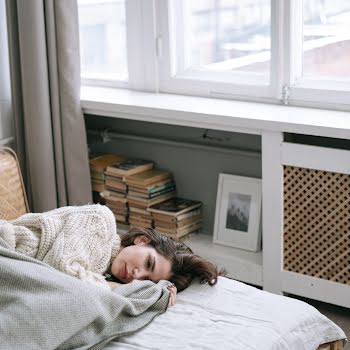
By Edaein OConnell
18th Oct 2020
18th Oct 2020
On World Menopause Day, we look at a survey that shows women feel that their menopause symptoms have been negatively impacted by the Covid-19 pandemic.
The menopause isn’t an easy ride at the best of times, but have you found that symptoms are worse during lockdown?
Well, it seems you are not alone.
The Menopause Hub, Ireland’s first and only dedicated menopause clinic, observed that more and more women were coming forward to say their symptoms had been negatively impacted by Covid-19.
The clinic decided to carry out an online survey during the first lockdown to find out more. The survey respondents were between the ages of 35 and 64, with 84% peri-menopausal or post-menopausal. 8% were early menopause, 3% were premature and 5% surgical menopause.
The key findings of the survey are as follows:
- 70% of women currently have symptoms of menopause.
- 20% of symptoms are under control because of medication.
- 10% have no symptoms.
- 64% of those with symptoms describe them as moderate to severe.
When it came to the Covid-19 crisis, 30% of women said their symptoms were worse during the pandemic.
Psychological/emotional symptoms
The psychological and emotional symptoms of menopause can be highly debilitating and these side effects have worsened in some. 66% of those surveyed felt more anxiety, 40% saw an increase in mood swings, 36% said they felt overwhelmed and 35% reported increased instances of weeping and crying.
Physical symptoms
Menopause triggers several uncomfortable physical responses and lockdown has heightened them. 53% of women experienced more hot flushes, 54% felt fatigued, 50% suffered from insomnia, 47% reported weight gain and 26% had migraines.
Genitourinary symptoms
The genitourinary symptoms include genital and sexual symptoms. This survey discovered that 45% felt a loss of libido, 26% had more bladder issues and 20% experienced vaginal dryness.
Why are symptoms worse?
Increased stress during the pandemic can lead to an increase in adverse symptoms. Financial worries, working from home, caring for elderly parents, home-schooling, and lack of social interactions are all adding to the pressure.
Routines have also changed considerably with many not even having one anymore. This can add more anxiety to daily life. We are also more aware of health issues and our bodies which can make us more aware of any aches and pains we are carrying.
Impact of menopause on relationships
Not only is the physical body and mind affected but a strain is put on relationships too. 48% of women said their relationship with their partner has been negatively impacted because of the menopause during lockdown, while 35% said their relationship with their children has been afflicted.
Read more: This is the ULTIMATE guide to sustainable menstrual products, from period knickers to CBD oil tampons
Read more: PMS: It’s time to start talking about premenstrual syndrome
Read more: ‘I wake up exhausted’: how to get a good night’s sleep, according to an Irish sleep expert





















